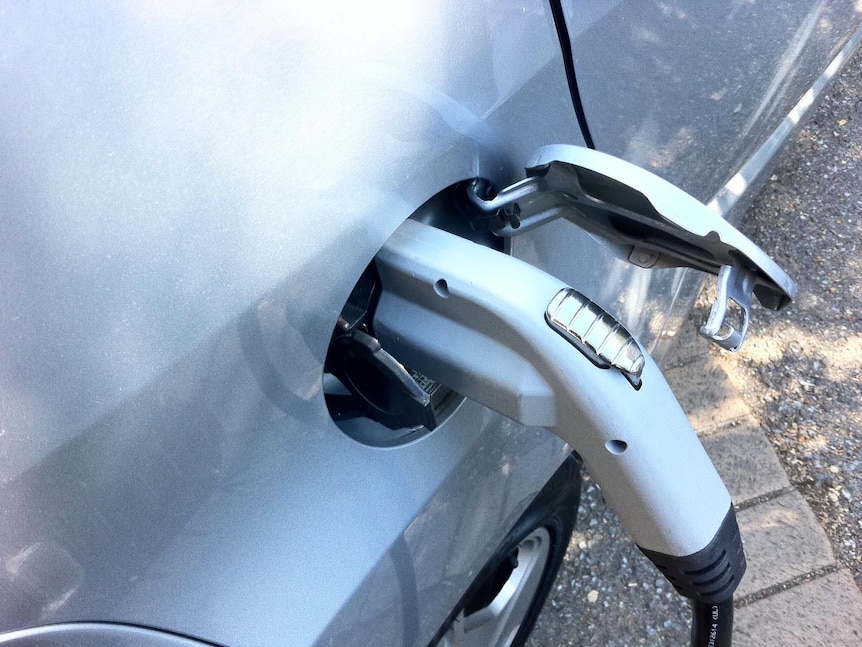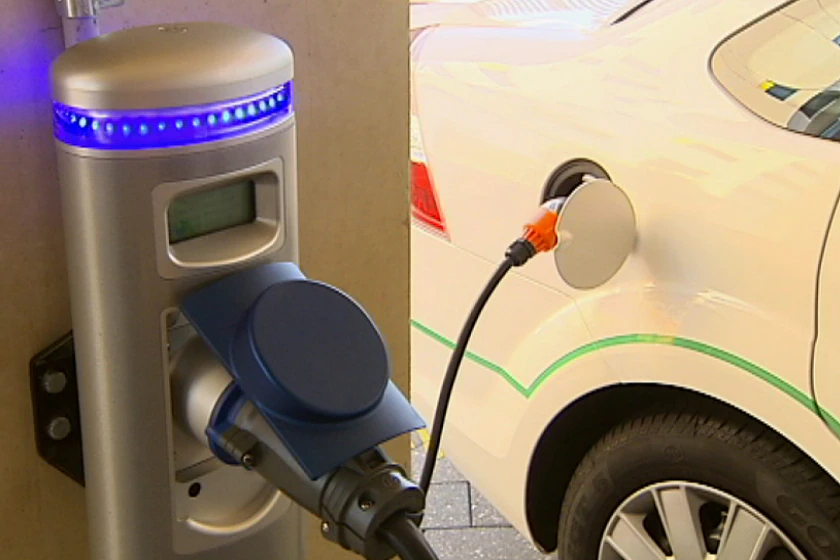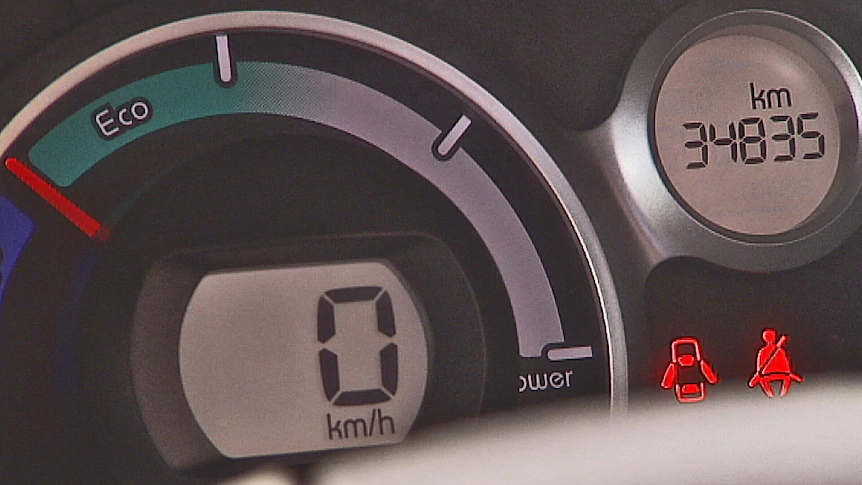Electric vehicle owners say taxing them by the kilometre could hurt a movement to go green.
The Victorian government yesterday introduced new legislation to Parliament to impose a tax on electric cars and other zero-emissions vehicles.
The tax is based on the distance a vehicle is driven but regional electric vehicle (EV) owners are going to be disproportionately affected by any tax on them if it goes by kilometres driven.

ABC: Spence Denny
)‘Complex to understand’
Sue, from Castlemaine, said it will create one hurdle too many for people thinking about going green.
“It wouldn’t bother me. Although I’m not very financially well-off, the imposition of this cost wouldn’t have changed my decision — but it is likely to change some.
“There’s so much doubt about how it’s going to be collected and who’s going to get it, federal taxes, and state taxes and it’s just a little bit too messy at this point in time and complex to understand.”
The Victorian Treasurer Tim Pallas said it was about ensuring drivers pay their fair share to use the roads and creating a sustainable road network.
“We are providing confidence to new electric vehicle owners with a massive boost to our charging network, funded by the distance-based charge, which will reduce range anxiety as a key barrier to take-up,” he said.

ABC News
)Bringing costs in line with other motorists
From July, a 2.5 cent/km charge will apply to electric and other zero-emission vehicles, including hydrogen vehicles, and a 2.0 cent/km charge will apply to plug-in hybrid-electric vehicles.
Motorists that drive fuel-driven vehicles pay a tax on the commodity, plus a Goods and Services Tax (GST).
The Australian Competition and Consumer Commission states the price of unleaded petrol and diesel at the bowser includes the fuel excise, taxed at 42.3 cents per litre.
For gas, it is 13.8 cents per litre.
Charging electric vehicle owners might bring running costs in line with the rest of Victorian motorists.
Sue said being taxed for every kilometre she drives in her electric vehicle had some merit.
Allocating costs ‘fairly’

ABC News
)Sue said she and her husband have an electric bike and car and use the car for distance when travelling to see family in Melbourne and use the train where possible.
But Brendan, from Neilborough, told ABC Central Victoria if the electric vehicle owners don’t want to pay the tax, they can simply drive less and use a variety of public transport.
Electric Vehicle Council of Australia CEO Behyad Jafari said the tax is about creating fairness and the long-term sustainability of the road network.
“It’s already fair for people who live further out in the regions and have further to drive,” he said.
“Are you driving beside public transport options or are you driving somewhere that’s not available to you and allocates those costs a bit more fairly?”
